Photographys and video’s
2020
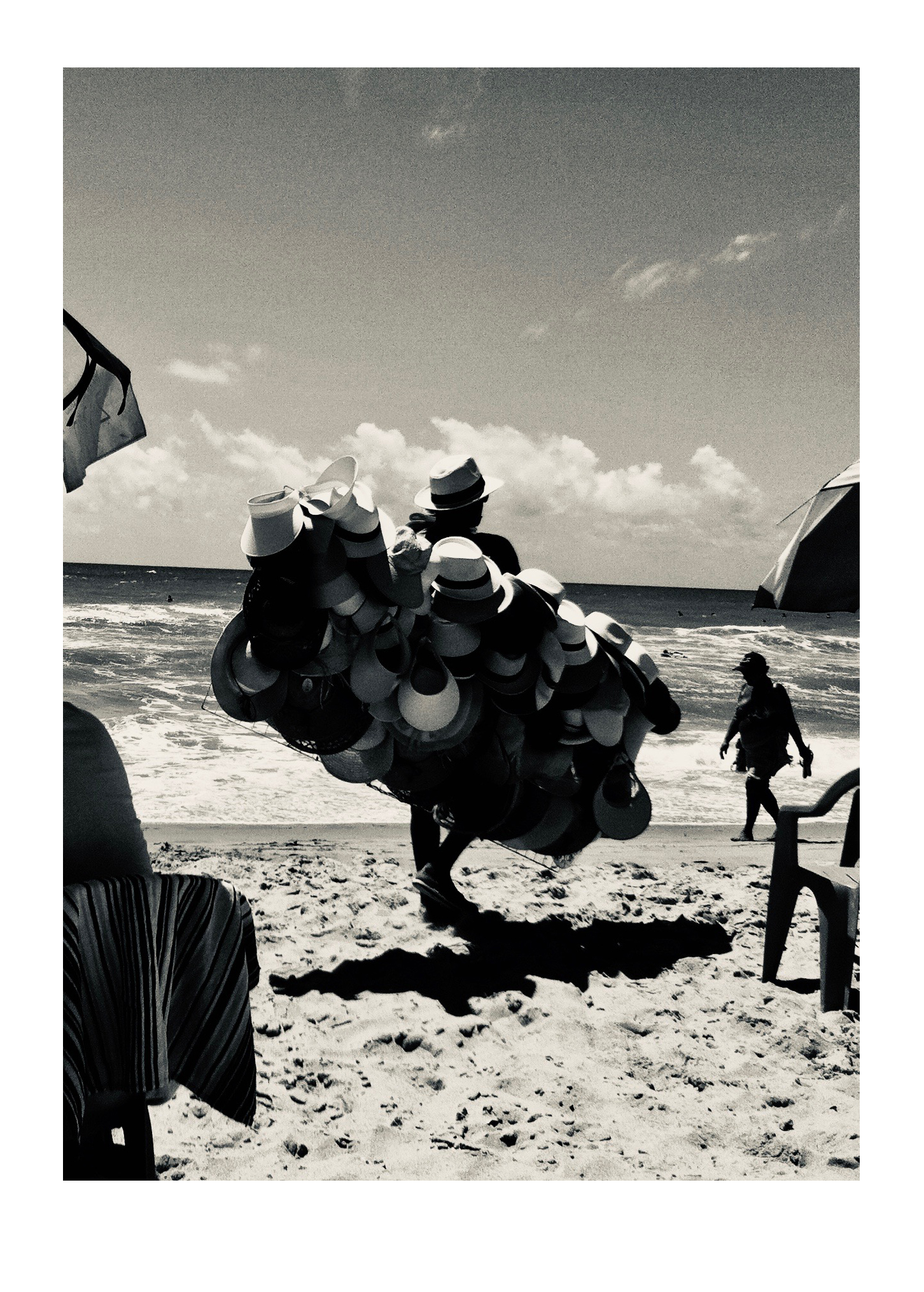 “Blind Waves” is a new development of the old photo series “Beach”, which was a gathering of my interest in Romantic Painting and the nostalgia of the lifestyle I left behind when I moved to Europe.
“Blind Waves” is a new development of the old photo series “Beach”, which was a gathering of my interest in Romantic Painting and the nostalgia of the lifestyle I left behind when I moved to Europe.The beach life had a familiar taste, and Porto da Barra Beach was the embodiment of my dearest dreams. Upon my return to Brazil following a period of absence, there was everything I had longed for: sunshine, warmth, unrestrained bodies, tender waters and the sweet taste of recognition.
A famous Brazilian myth describes the beach as a democratic space where all classes and races equally coexist. I created a poetic series of photographs that unconsciously resembled that thesis.
Years later, the work was drastically altered.
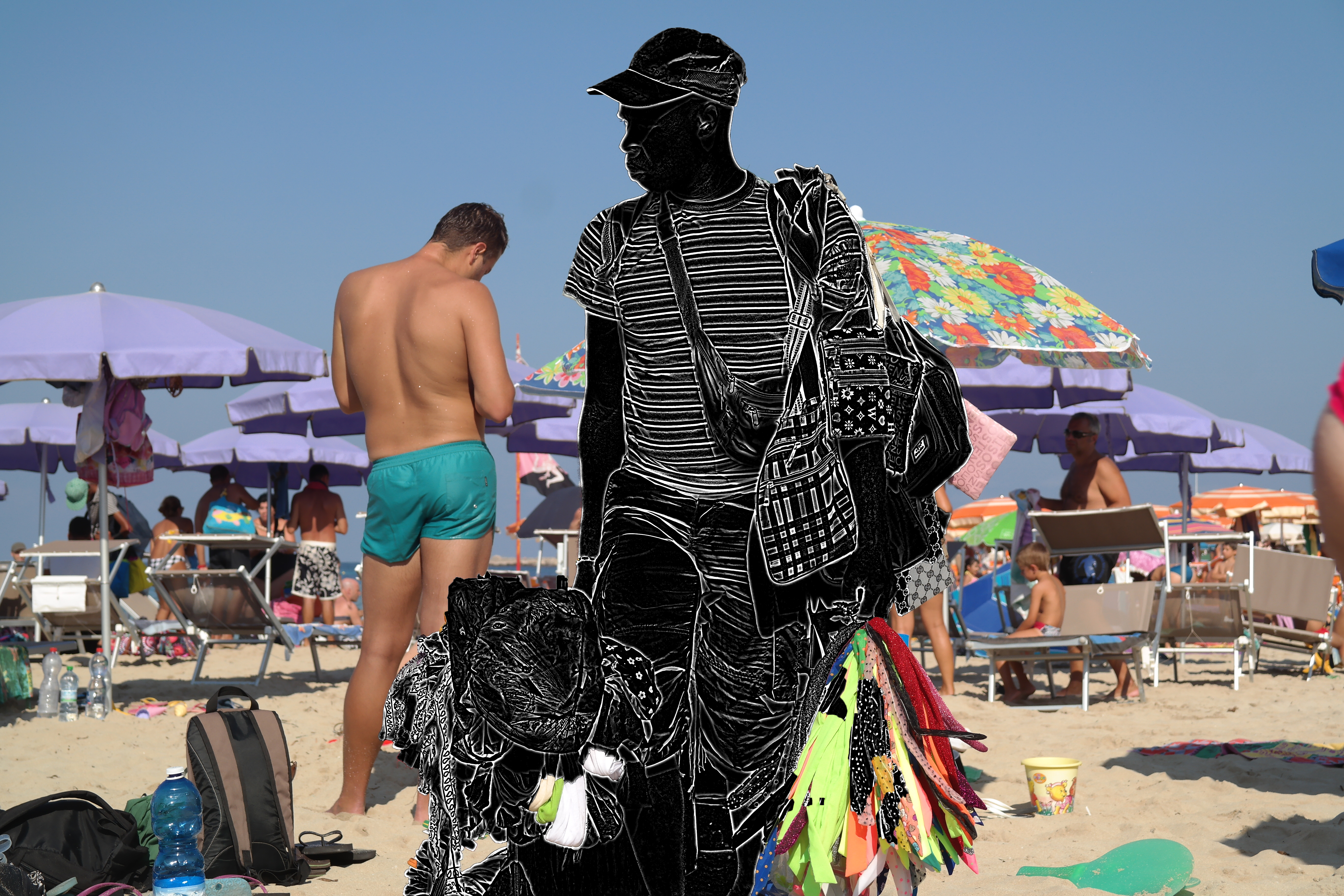
Bodies, gestures, poses, games, maneuvers, deviations that were previously perceived without distinction have now undergone a transformation in the territory /battlefield before my eyes. Suddenly, I realized that, despite occupying the same space, they were not mixing.
My nostalgia was seeking an illusion of equality, whereas my point of view was one of a privilege. A white-class privilege. The democratic beach was merely an illusion, an annexe to another myth: the violent Brazilian myth of racial democracy.
Seeing is a process steeped in conjecture, as we see what we believe. And seeing beyond our beliefs comes as shock, slap in the face, and embarrassment.
The embarrassment of ignorance.
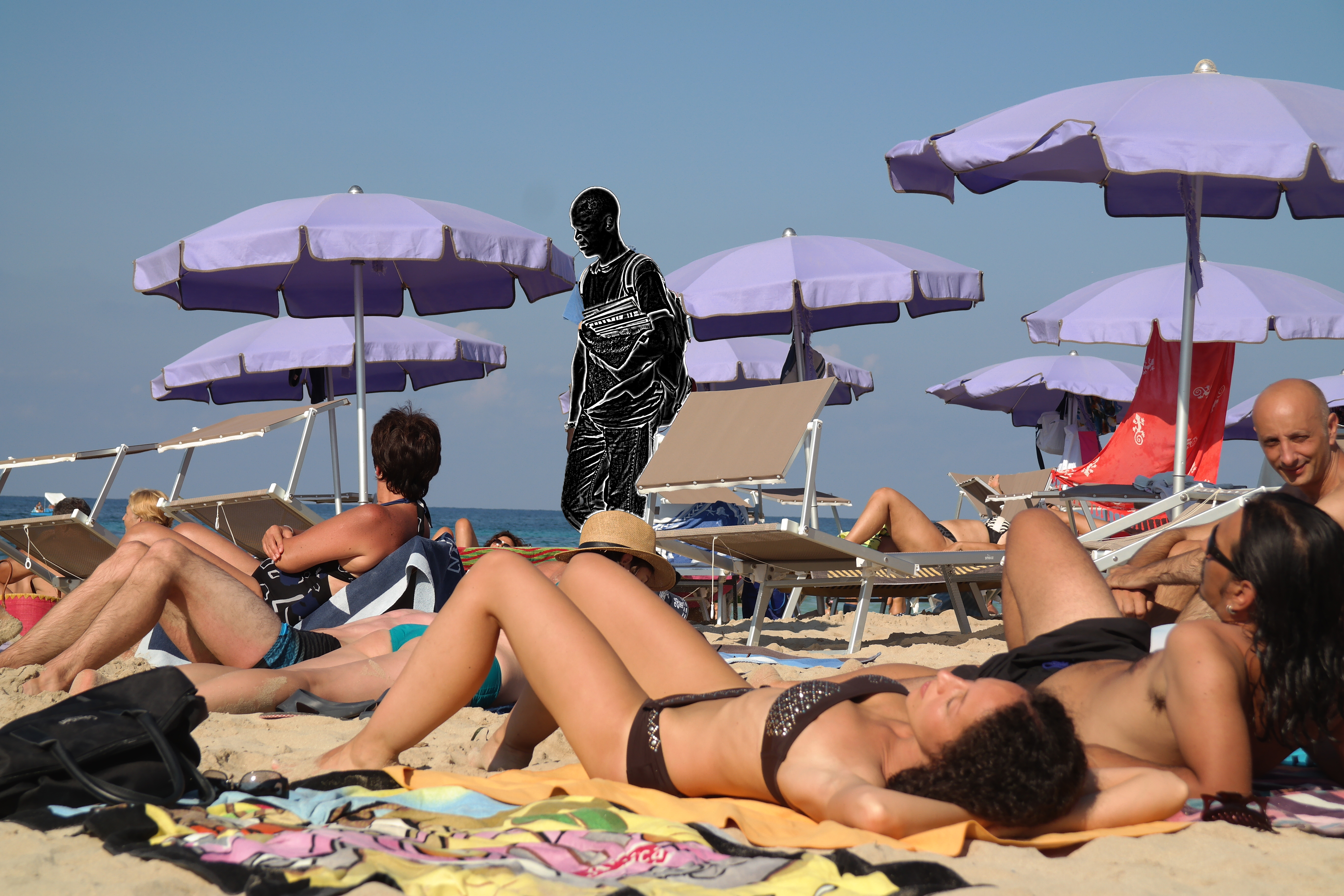
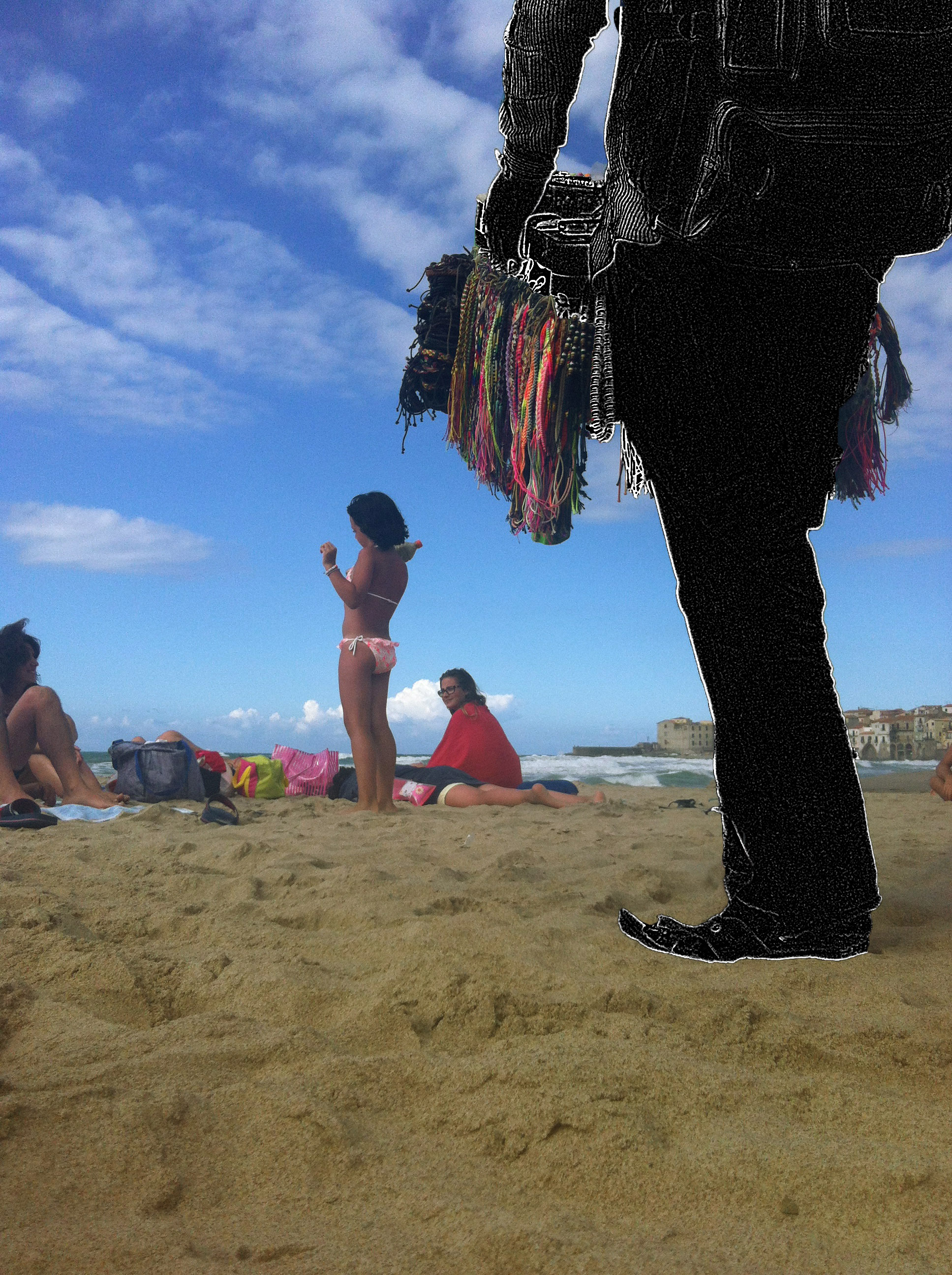
And that was how it happened: all of a sudden, I began to see.
And what I perceived was a separation.

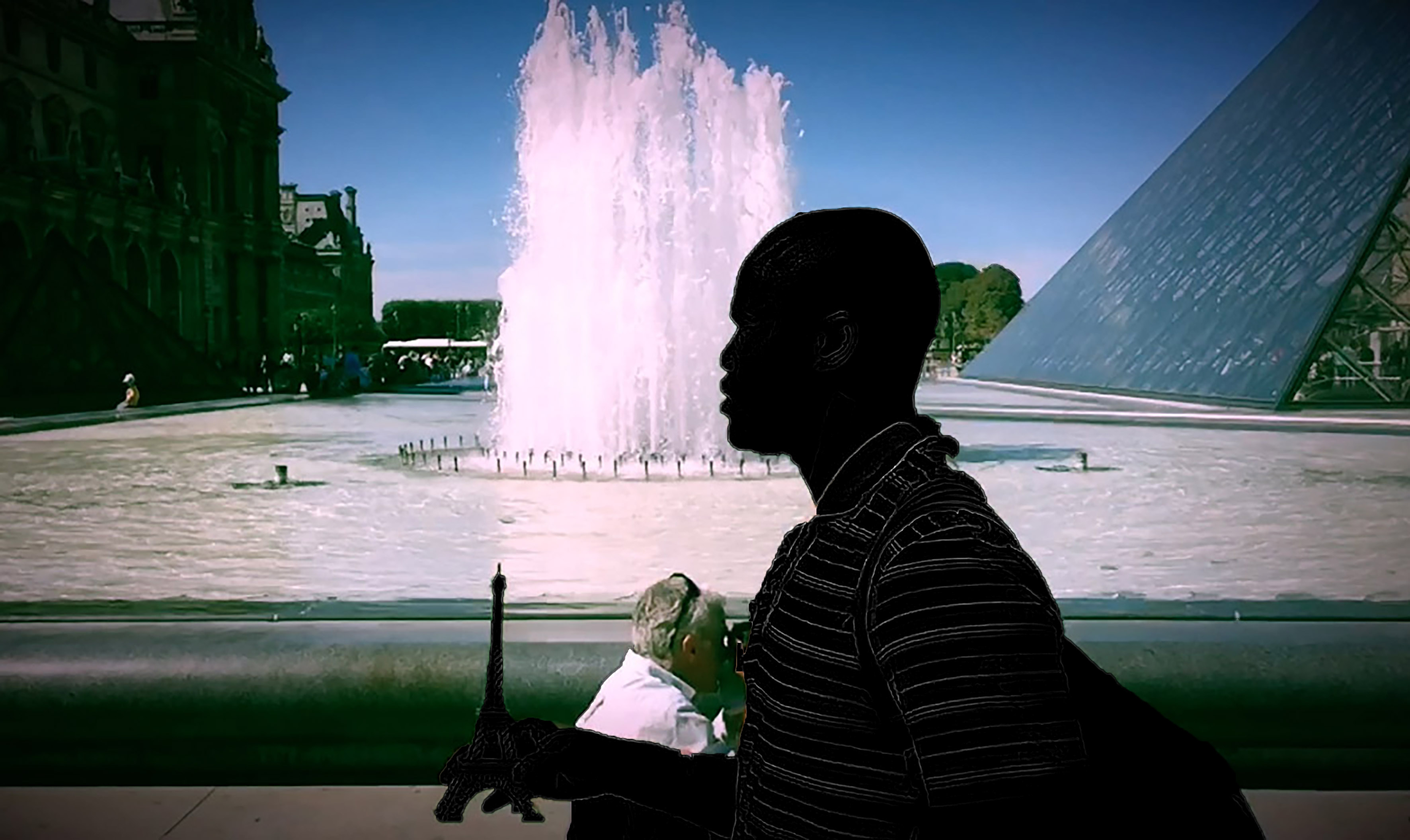
Paris 2016
*



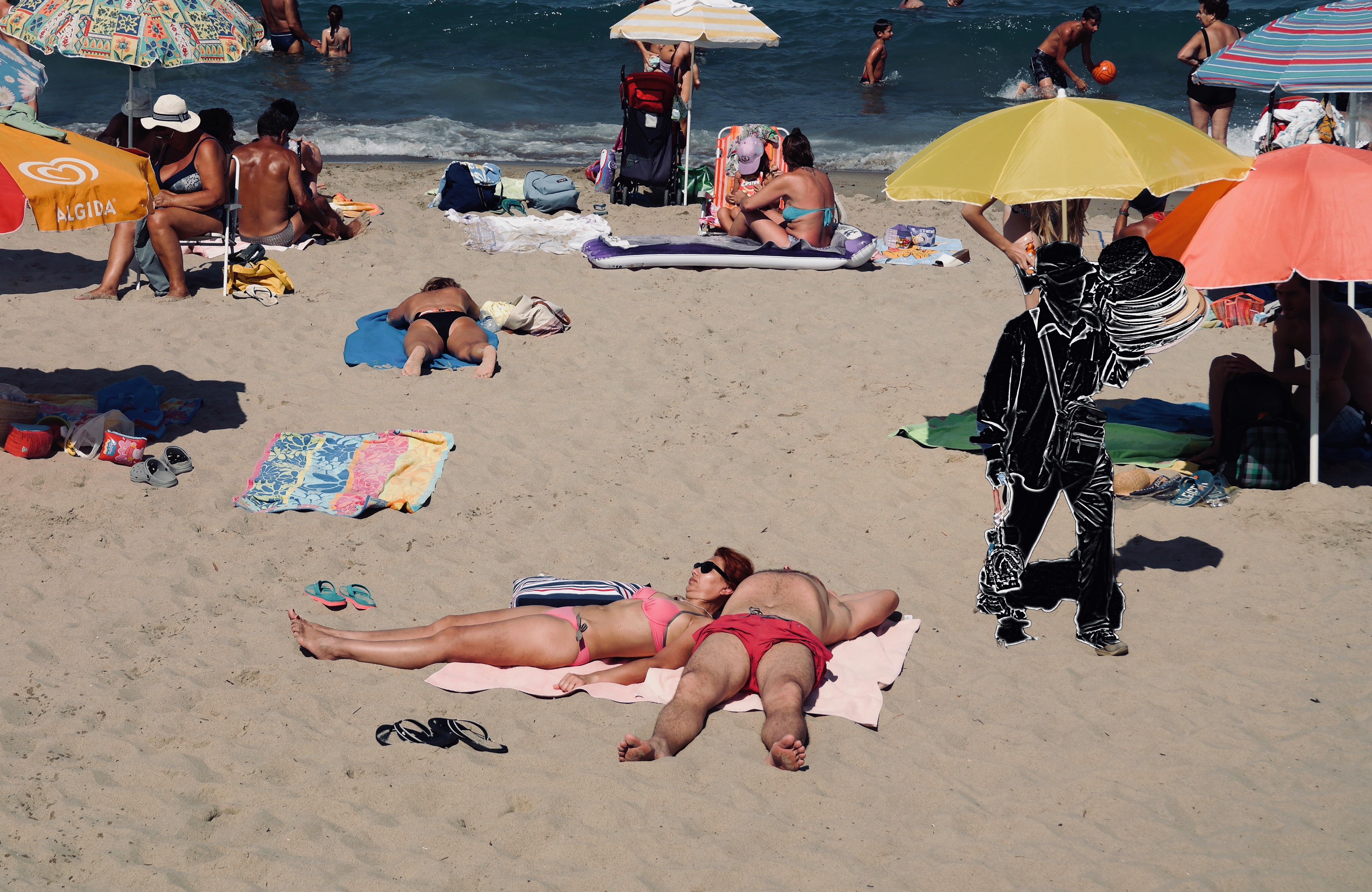
In petty-bourgeois leisure settings, that is, for whites, the place of black bodies is a suspended, invisible place.
The place of illegal and uninsured work.
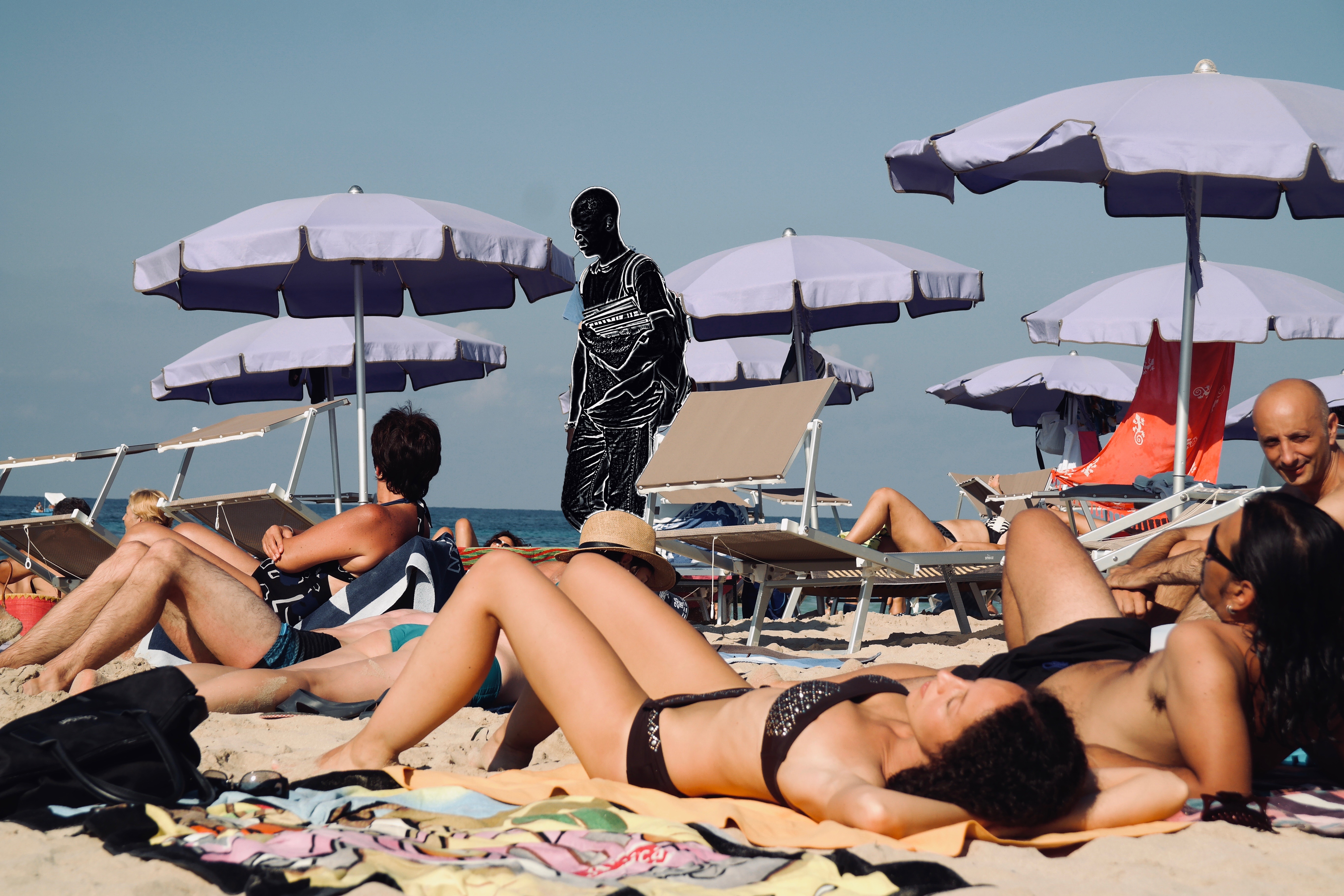
The place of illegal and uninsured work.
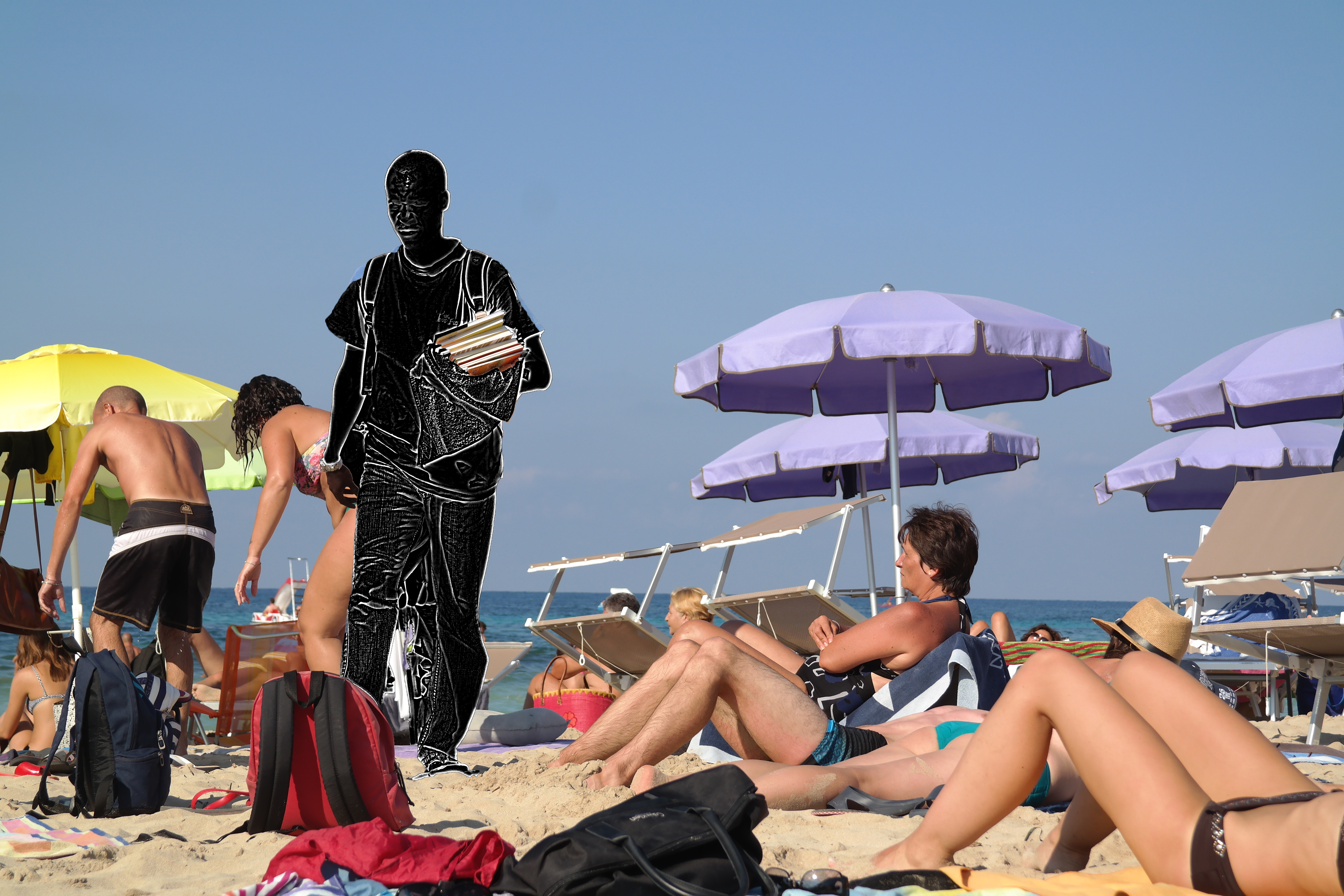
Where shadows move invisibly carrying misshaped luggage.

Cloths, toys, sunglasses, hats, bikinis, souvenirs, hammocks, assorted fake products - eventually also food.
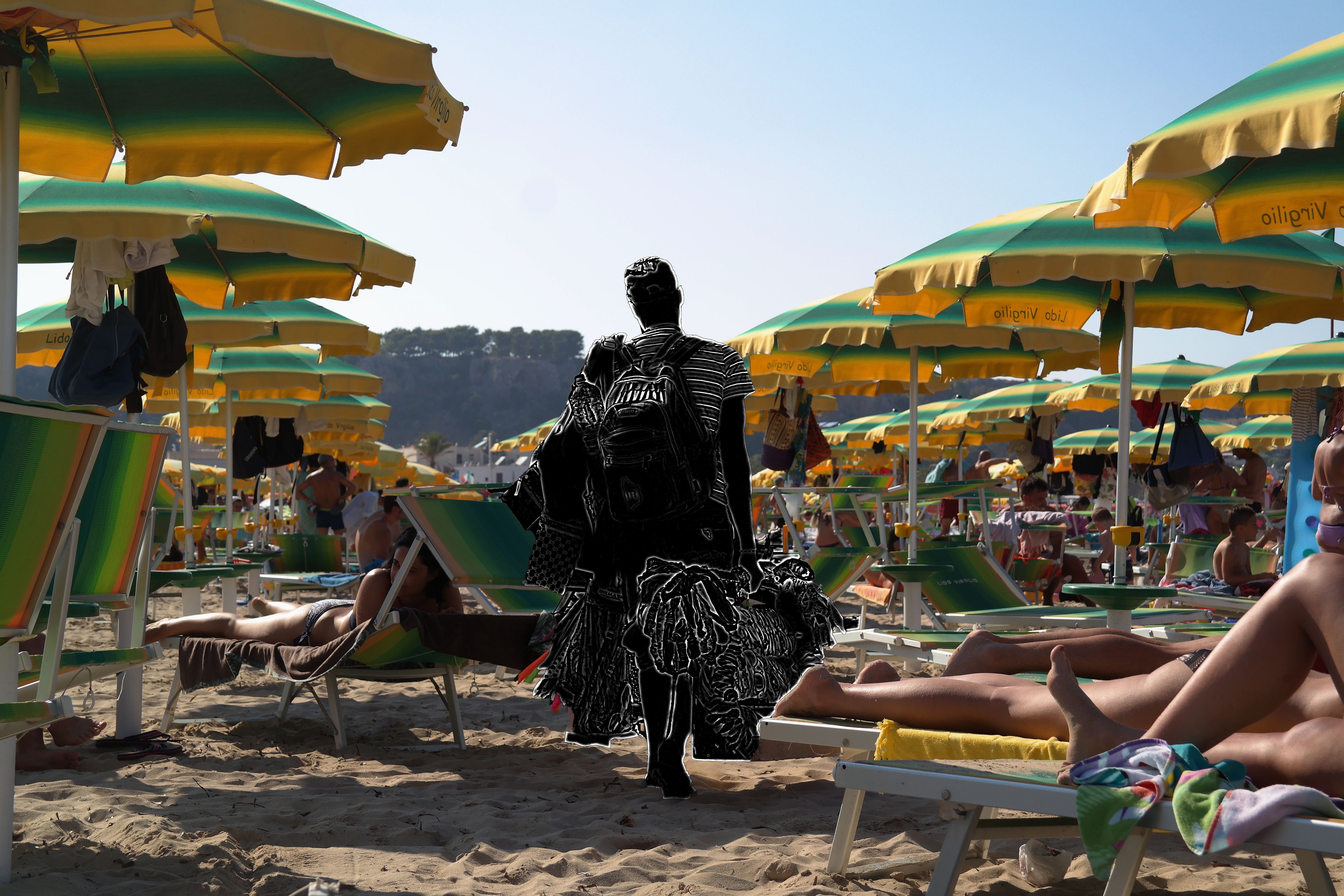
Black shadows wander the beaches of Brazil and Europe, selling, in general, outsourced products.
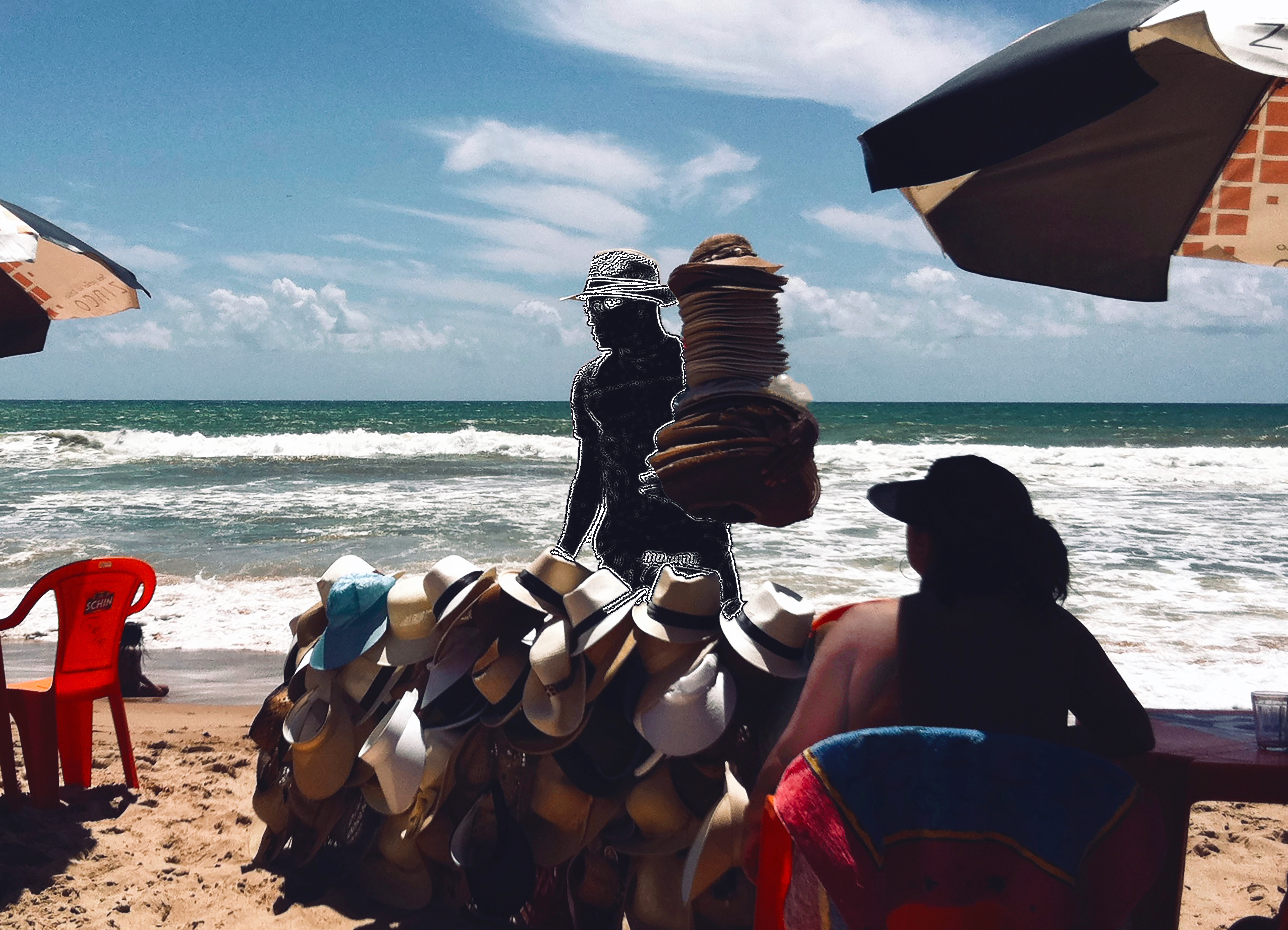
Images recurring on the beach, but also in the city, in front of museums, tourist spots and other leisure areas.
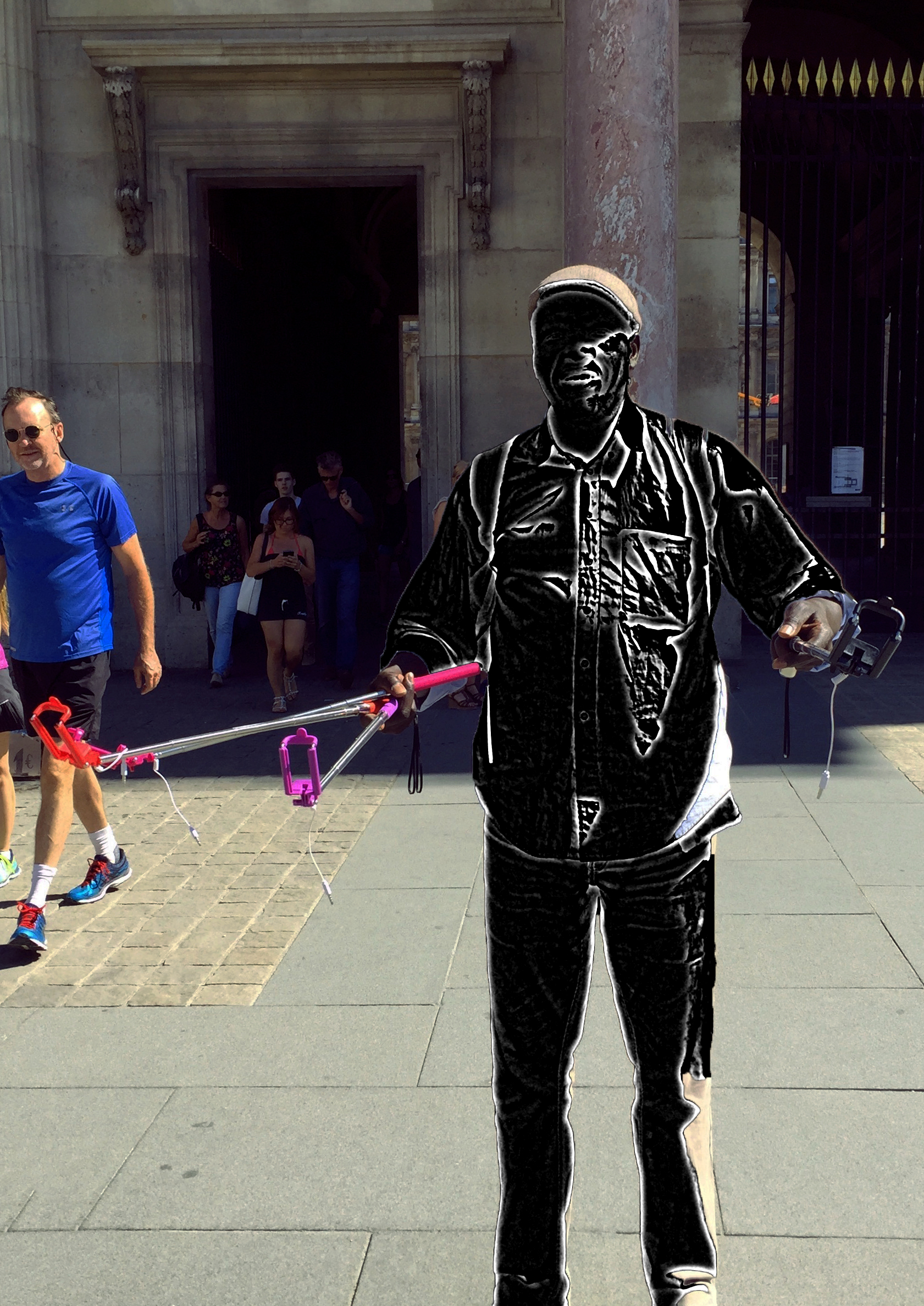
Scenes from Salvador, Paris, Rome, Madrid, Greece or Sicily are repeated.
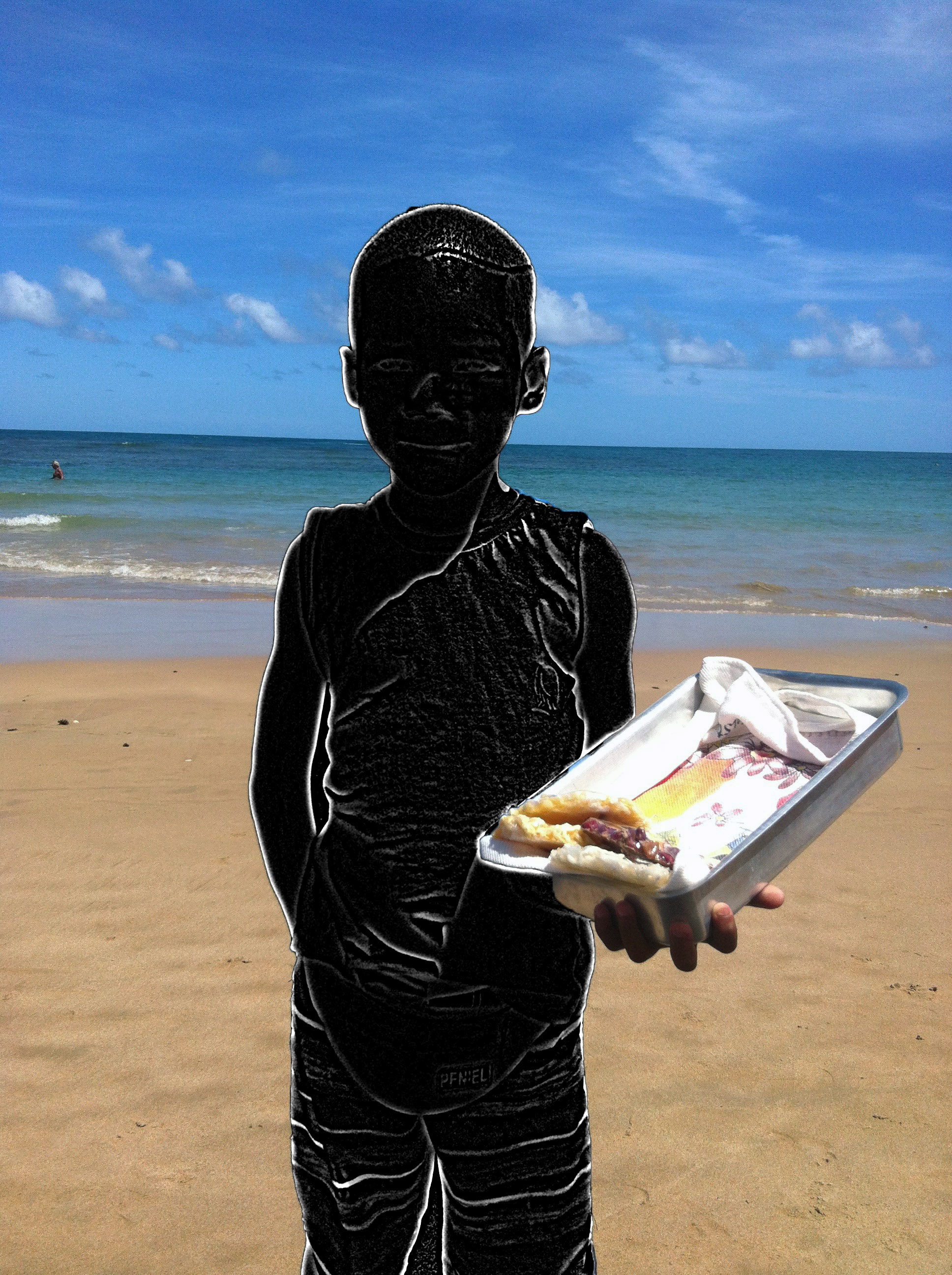
Occasionally, children.
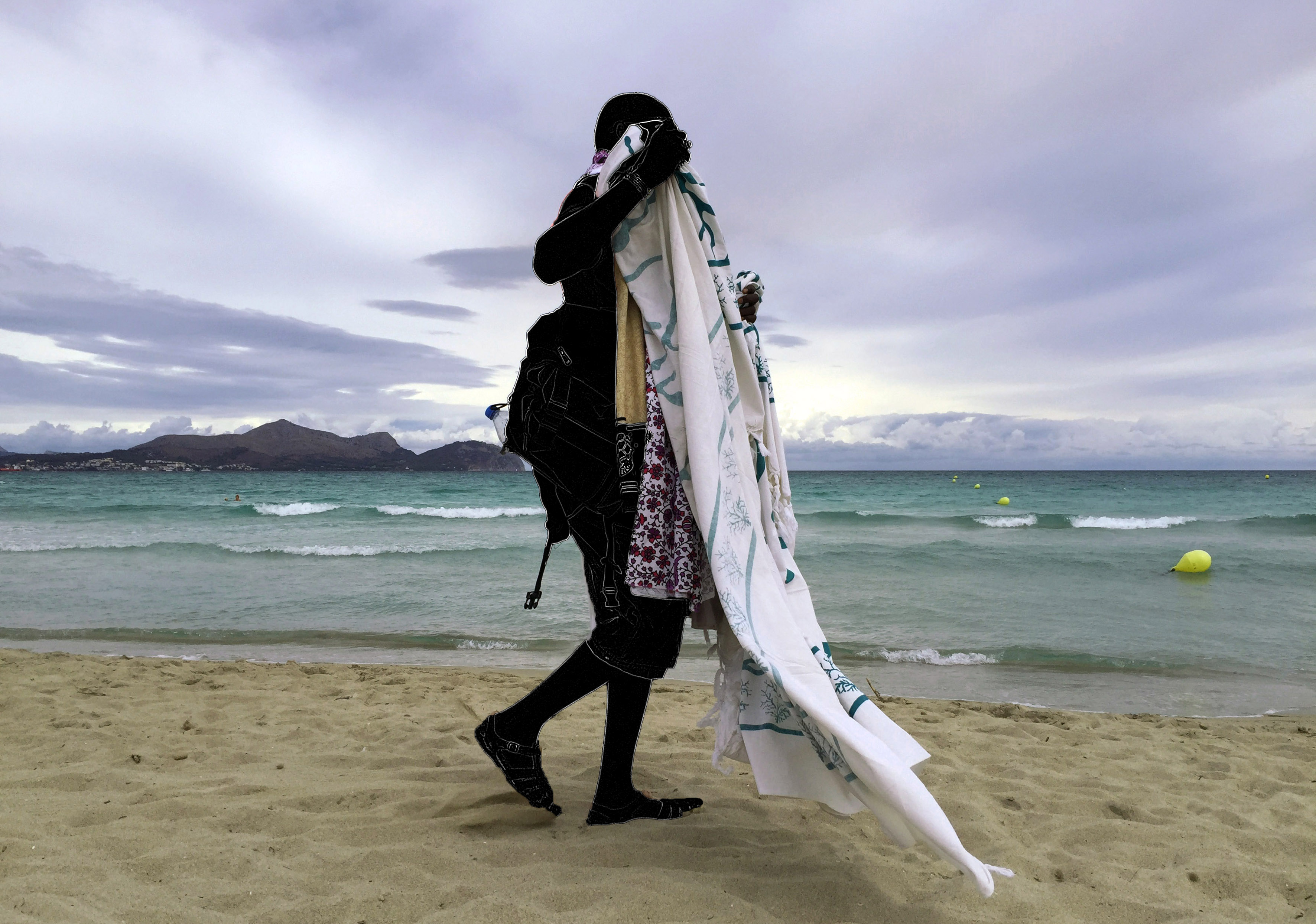
Bodies walking under the sun of the globalized blindness, dehumanised, working tirelessly without rights.

In Brazil, the favelados, the precarious, all descendants of the enslaved who were brought from Africa by force for nearly four centuries.
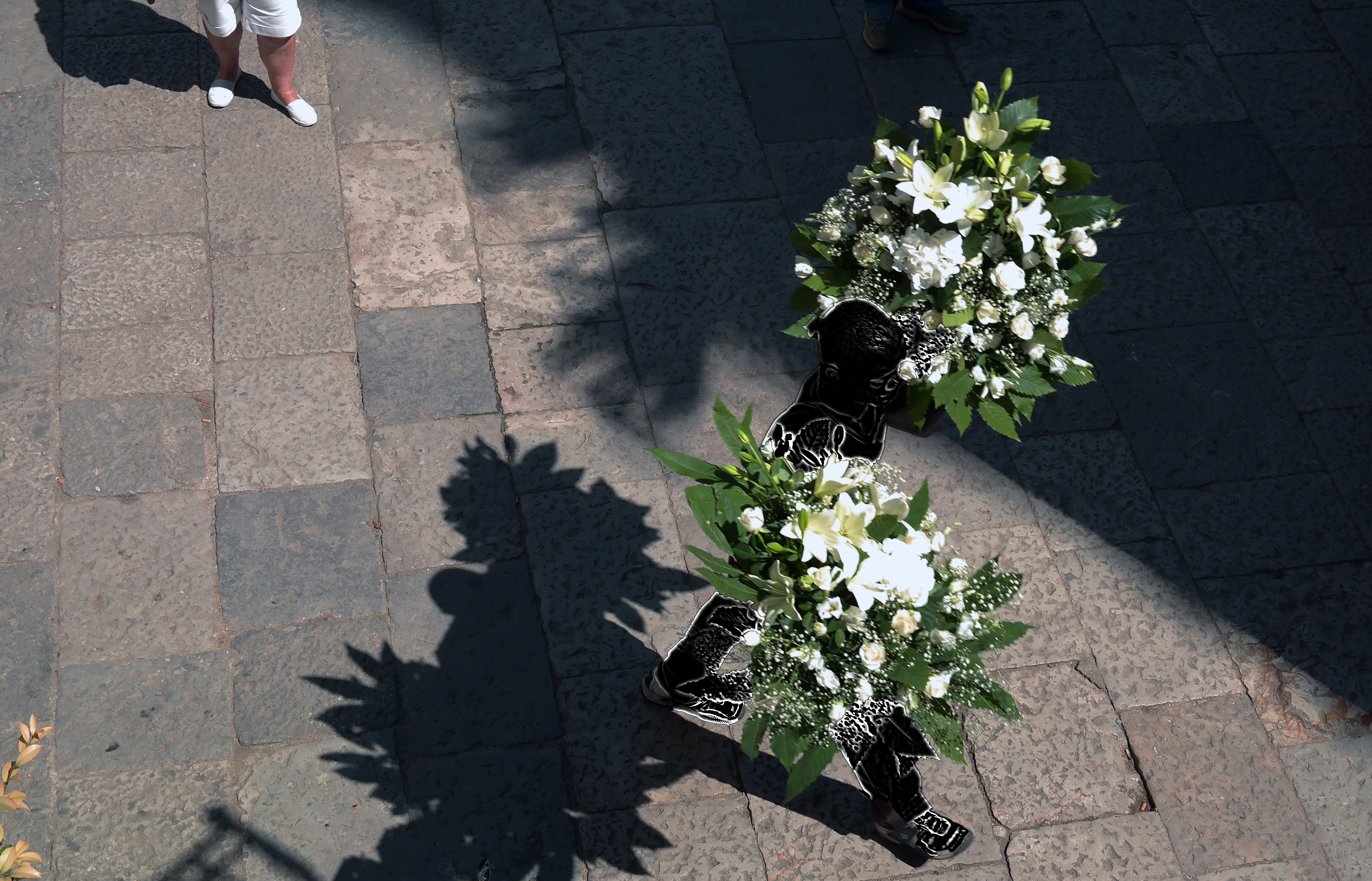
In Europe, those who recently fled war and famine, those who crossed the ocean in precarious boats and survived the crossing, refugees, asylum seekers, illegal immigrants.
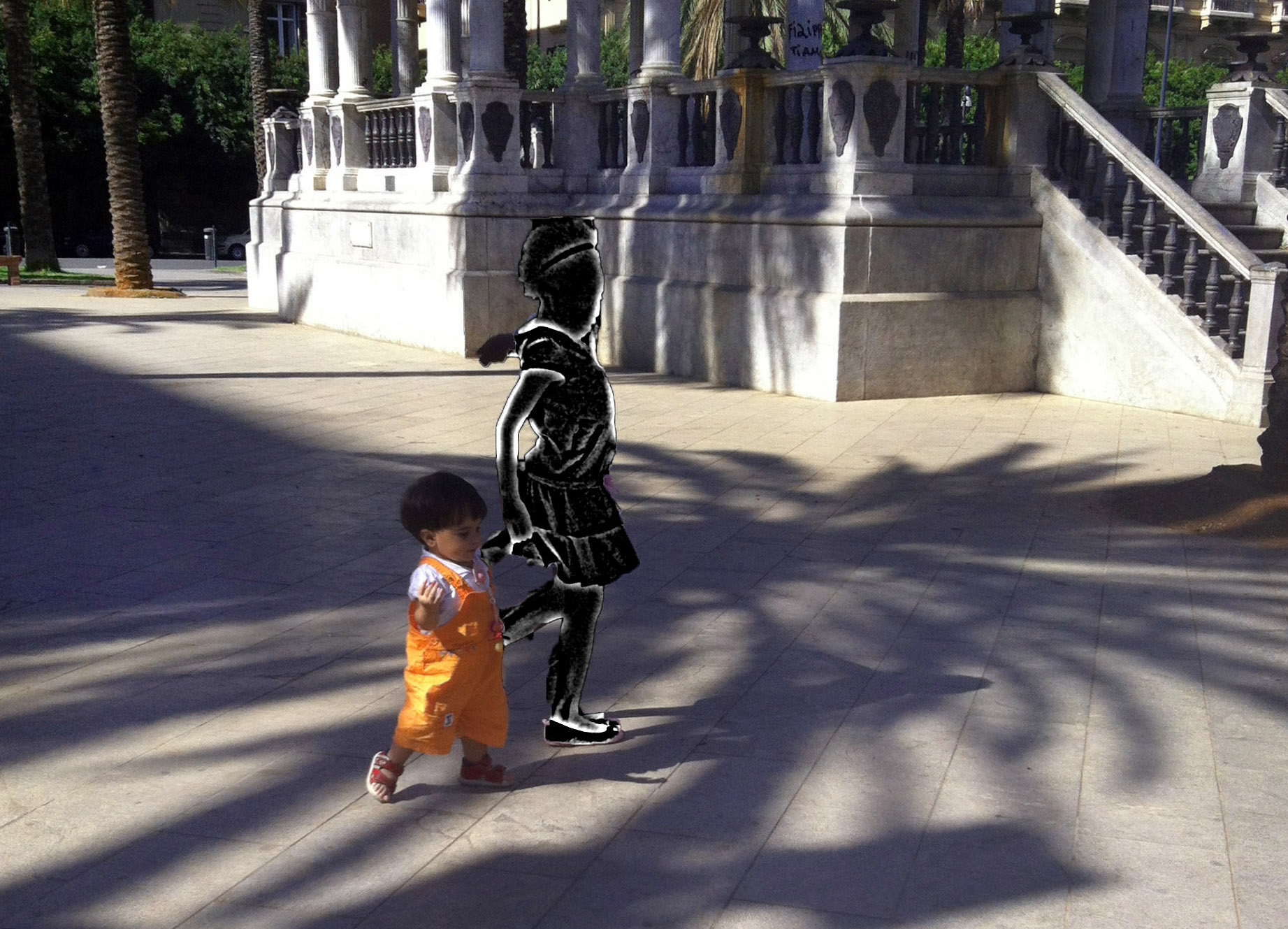
I recreated their shadows digitally, in a metaphor for their invisibility in global capitalism.
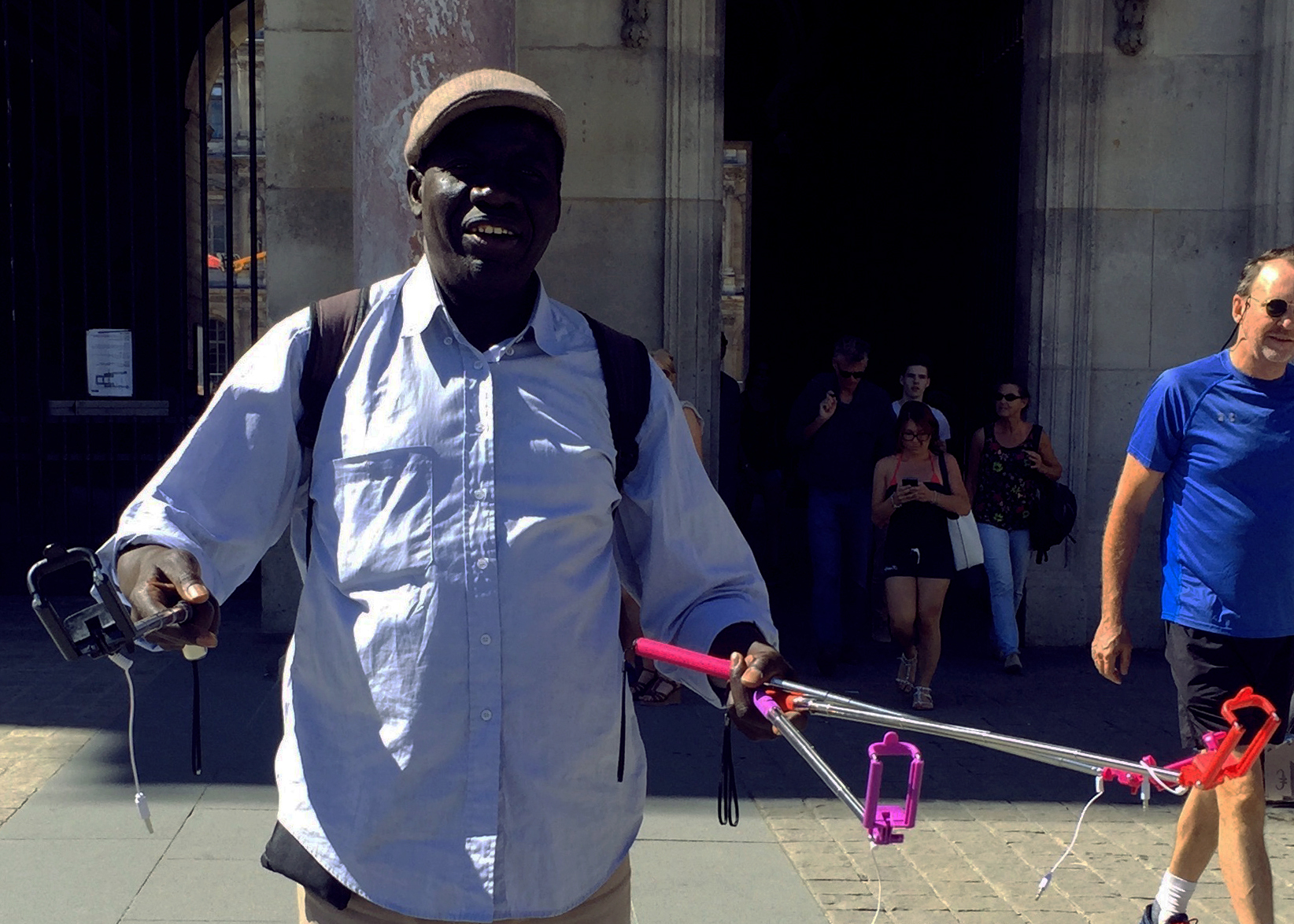
The intention is to re-read the images, intensifying their exclusion and silencing.
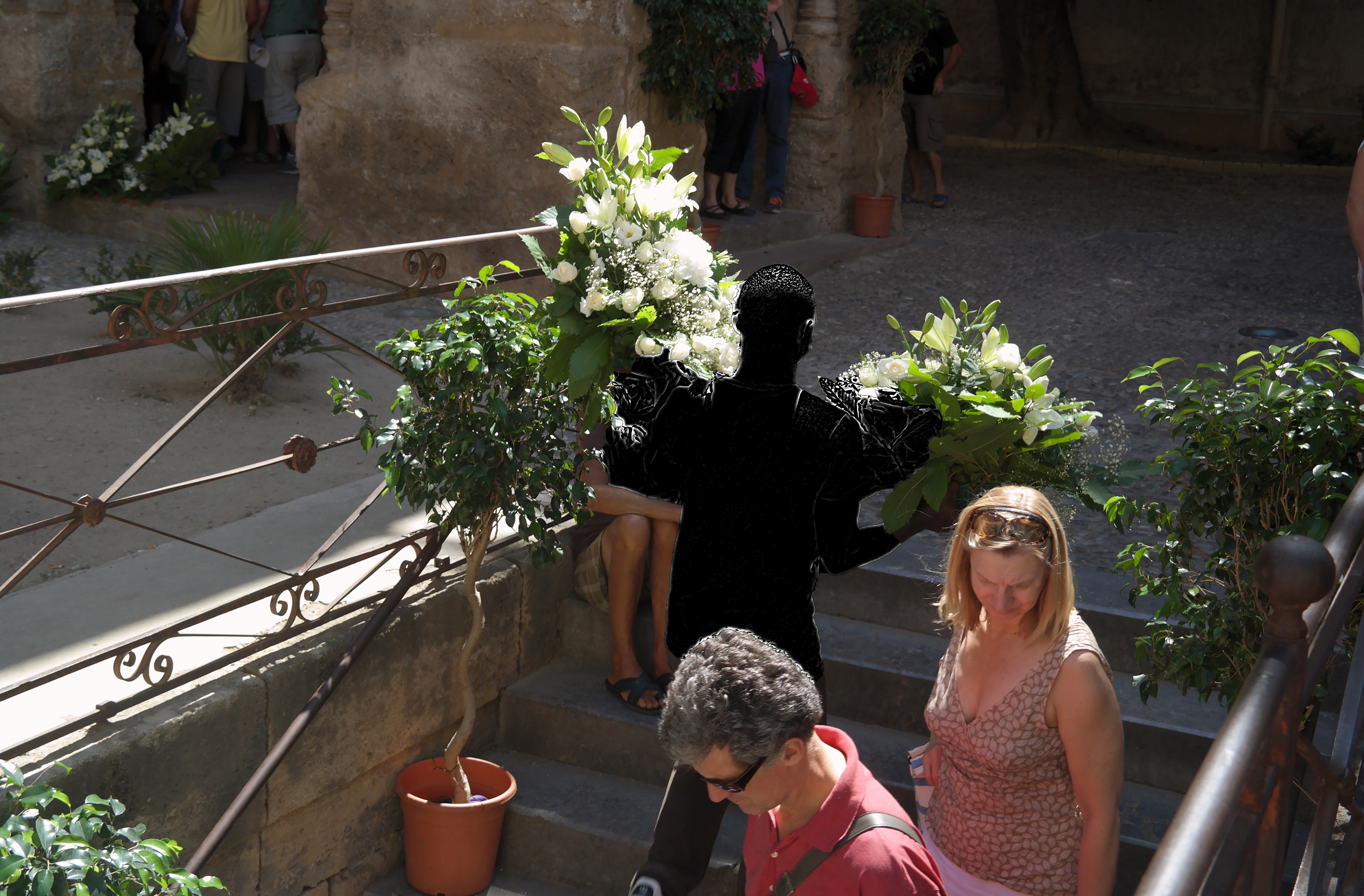
The title “Blind waves” was randomly taken from a text by the Cameroonian philosopher Achille Mbembe.
The photographs were taken in:
Brazil (2000 / 2001 / 2006 / 2010)
France (2016 / 2023)
Italy (2014 / 2022)
Spain (2016)
Neyde Lantyer © 2020 All rights reserved.
Brazil (2000 / 2001 / 2006 / 2010)
France (2016 / 2023)
Italy (2014 / 2022)
Spain (2016)
Neyde Lantyer © 2020 All rights reserved.